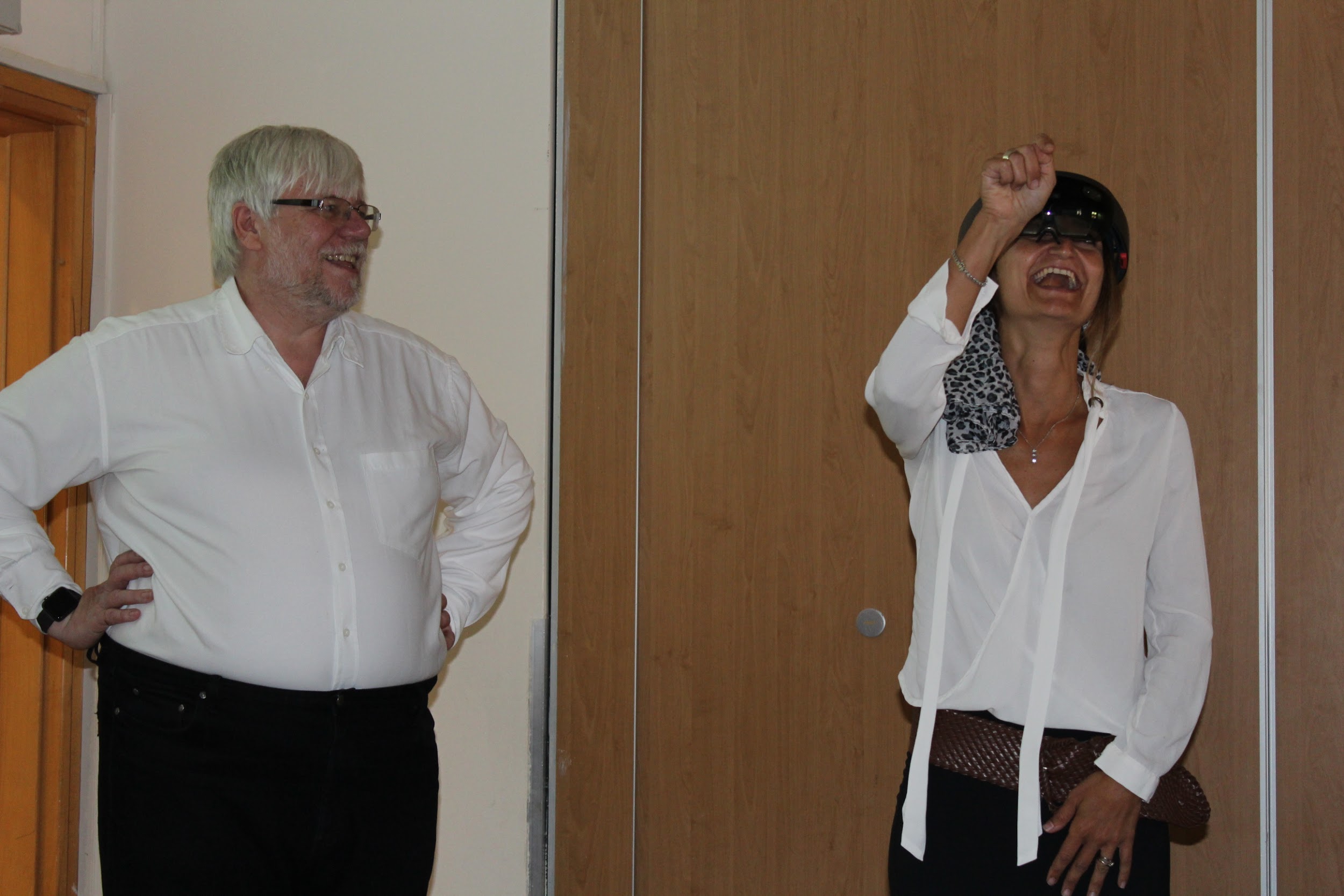This week we were honored to host David Banes at Beit Issie Shapiro. David is known internationally for his work in assistive technology (AT) and he shared with us his wealth of insight and valuable experience. David started his career as a teacher for students with disabilities in England, served as principal at a school for special needs, and later spent many years as the CEO of Mada, the Qatar Assistive Technology and Accessibility Center, providing assistive technology guidance, suggestions, and skills to many different communities throughout the world.
We recommend that you visit his website and follow him on Twitter or on Facebook.
Throughout his time with us David met with several different departments including The Technology Center, the professional and educational staff of our day programs (both in Ra’anana and in Kalansua), and to professionals from the community.
In addition, David spoke to a group of entrepreneurs from our accelerator and consulting programs providing valuable and relevant information about the trends in accessible technology and what to consider when seeking to bring a new product to market with a successful business model. He also spoke about disruptive innovation, opportunities in the global market for Assistive Technology (AT), policies and potential funding sources.

David Banes lecturing to Entrepreneurs at Lighthouse
One of the themes that appeared throughout David’s lectures was the use of new mainstream technologies for people with disabilities. At Beit issie Shapiro we experienced this firsthand with the introduction of the iPad, in 2010, which since has become an invaluable device in our day programs at Beit Issie Shapiro.
David introduced us to a number of new technologies that are causing a similar impact to the lives of people with disabilities such as :
- wearables, like the Apple Watch (Apple Watch and accessibility)
- intelligent personal assistants like Alexa controlled through the Amazon Echo
- smarthome control systems
Each of these devices or technologies gives people with disabilities control over their environment and allows them to be more active and independent participants in their daily lives. Use of mainstream technologies in the world of disabilities is increasing and it is essential for professionals to become familiar with them and their use.
Why we love mainstream technologies:
- They are normative and esthetically designed
- They are easy to find and fix (compared to traditional AT)
- They are generally more affordable than traditional AT

David Banes lecturing to staff and guests at Beit Issie Shapiro
David also talked about the increasing presence of virtual reality and augmented reality and we had fun trying out the Hololens from Microsoft. Systems like these can have amazing applications for people with disabilities including learning and leisure.

Smart watches provide support apps for those downloaded on the phone providing people with quick access without having to hold their phone or take it out of their bag. They can be very useful for people with various disabilities, for example those with communication difficulties can have quick access to AAC or someone with physical difficulty manipulating a wallet can easily pay for things with a tap of the wrist. The Echo can be used to play music, access information, and control the home environment. It currently only supports English but it is forgiving with foreign accents and our participants were able to easily activate it. As its popularity grows, additional languages are expected to be added. Environmental control has always been a focus for people with disabilities and these technologies integrate to allow intuitive and easy access to home control. As these technologies improve we expect to see even greater personalization and control available. As David said with respect to home control systems “You ain’t seen nothin’ yet!”
David summarizes his impressions of Beit Issie Shapiro: “Beit Issie Shapiro is at the heart of the drive for innovation and implementation of accessible technology for people with a disability. The work is a major contribution towards ensuring that access and inclusion become a reality today and tomorrow.”
Beit Issie Shapiro would like to thank Mr. Banes for an eye opening and insightful week.




Leave a Reply